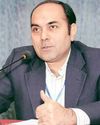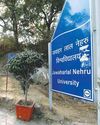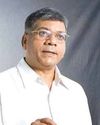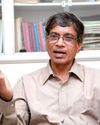Universal basic income, an idea from medieval European philosophy, is offered as the mother of all welfare schemes. Money for nothing, which unburdens your mind to a degree, has its downsides and needs some homework before implementation. It’s an idea Modi is bound to be enthused by and he may be expected to give it full consideration. After demonetisation, this could be his next big thing.

From Mahatma Gandhi’s Sabarmati ashram to corporate talk shop Davos, it’s creating a buzz everywhere. If nothing is stronger than an idea whose time has come, then people in more and more countries are likely to start getting free pay cheques every month from governments. It’s called universal basic income (UBI) – an old notion of state welfare that has been rediscovered in the increasingly anxious West to counter joblessness and automation. After a failed start with a Swiss referendum last year (result: no), several European counties are starting pilot projects to deliver to all citizens a nominal amount of money not tied to any conditions or any health or pension scheme. Just plain free money.
In India too, for different reasons, the idea has arrived. Arvind Subramanian, a reputed economist and chief economic advisor to the finance ministry, has promised to devote a chapter to UBI in the economic Survey this year. Subramanian is enthusiastic about UBI. At the Gandhi Jayanti celebrations at the ashram last year, he held an imaginary dialogue with the Mahatma. “What would Gandhiji have said to this idea of UBI?” he asked, listing out at least four objections he would have – charity to able-bodied persons, cost to the government, market forces ranged against the poor, and men misusing the money on vices. Subramanian then went on to answer Gandhiji. “Today there are at least 1,000 schemes that the central government runs for the poor… It is not clear that the money actually reaches the poor. So the question is whether the UBI is a more effective way of reaching the poor,” the Indian Express quotes him as saying.
この記事は GovernanceNow の February 1, 2017 版に掲載されています。
7 日間の Magzter GOLD 無料トライアルを開始して、何千もの厳選されたプレミアム ストーリー、9,000 以上の雑誌や新聞にアクセスしてください。
すでに購読者です ? サインイン
この記事は GovernanceNow の February 1, 2017 版に掲載されています。
7 日間の Magzter GOLD 無料トライアルを開始して、何千もの厳選されたプレミアム ストーリー、9,000 以上の雑誌や新聞にアクセスしてください。
すでに購読者です? サインイン

the trump phenomenon
how the 2016 election exposed the us underbelly.

chinnamma is not amma
sasikala may have become the leader of the aiadmk, but she is a far cry from j jayalalithaa, who towered over tamil nadu politics like a colossus.

sakshi malik
sakshi malik is the first indian female wrestler to bag an olympic medal. the 24-year-old comes from mokhra village of rohtak, haryana. she came into the limelight as an international wrestler after she won bronze in the junior world championship in 2010. then, she went on to win silver in the commonwealth games in 2014 and a bronze at the asian wrestling championships in 2015. after rio olympics, malik was conferred india’s highest sporting honour – the rajiv gandhi khel ratna. she is also the brand ambassador of the beti bachao, beti padhao campaign in haryana.

Across The Threshold
A social media campaign aims to bridge gaps between communities by urging people to visit ‘people unlike us’

'How Can An Insurance Firm Promote Death?'
Dr Pankaj Chaturvedi, head and neck cancer surgeon at the Tata Memorial hospital in Mumbai, is a leading antitobacco activist. He joined hands with Sumitra Hooda Pednekar and others to file a PIL in the Bombay high court earlier this year, questioning the staterun insurance firm LIC’s investments in a leading cigarette-maker company. Edited excerpts from an interview with Geetanjali Minhas:

The Wolf And The Lamb
Social injustice and the fate of the university

"Young Dalit Leaders Have Age, Situation On Their Side"
How do you see the rise of the Bhim Army in Uttar Pradesh?During the last assembly elections in UP, it was a common consensus among many [dalit leaders] that we’d give one more chance to Mayawati.

Timely Delivery
A veteran bureaucrat explains how to complete government projects without time and cost overruns.

Cauvery Water Dispute
India’s leading water expert and president of the South Asia Consortium for Inter disciplinary Water Resources Studies, S Janakarajan, wonders why Chennai, a city that receives 1,250 mm rainfall, is called a thirsty city and goes on to explain to Shivani Chaturvedi what went wrong among the southern states that led to a water-war like situation. But, he warns that such a scenario will keep occurring if the government does not come up with a lasting solution.

Case Against Cash
Can you imagine a day without cash?